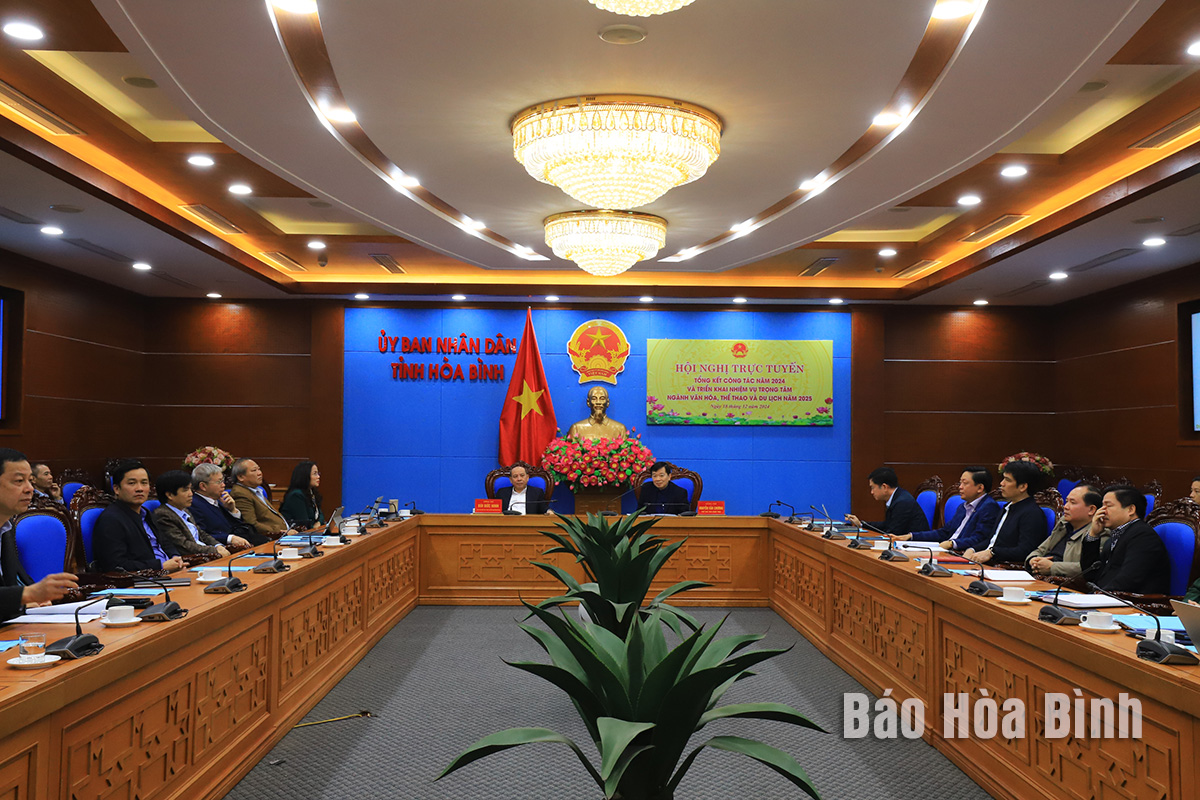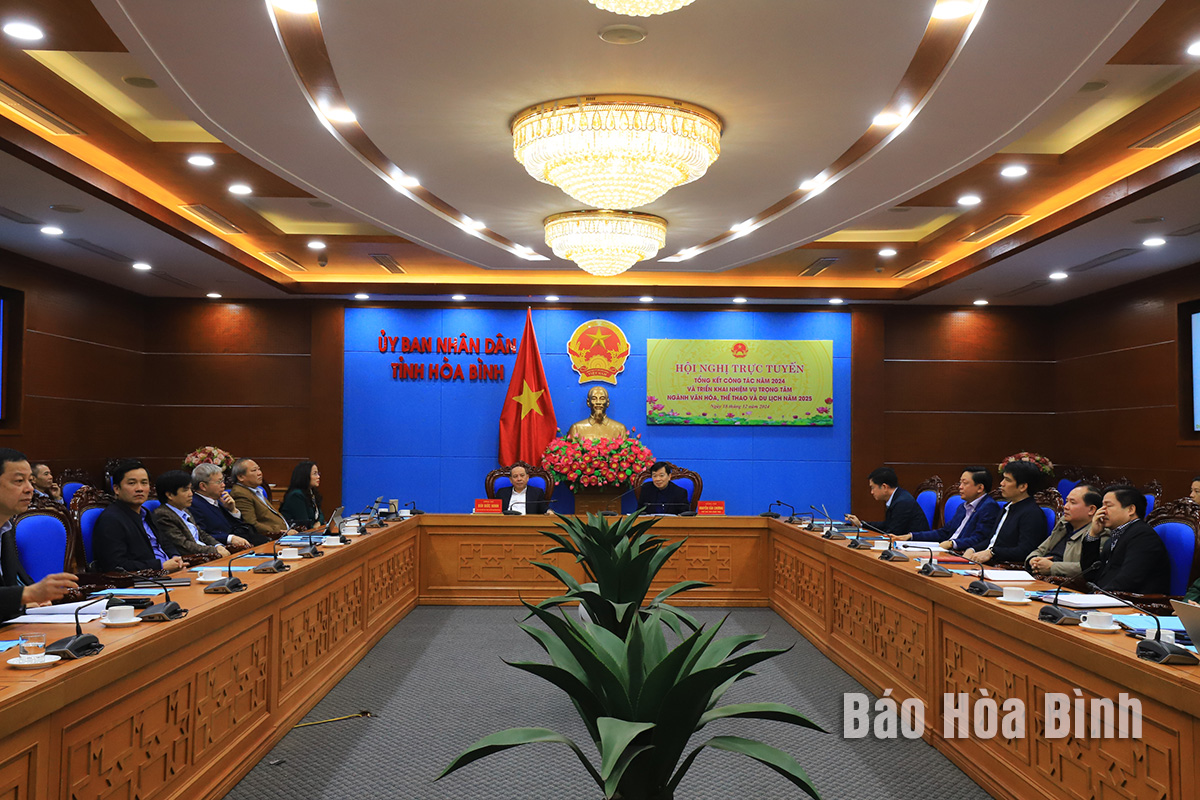
Prime Minister Pham Minh Chinh attended a hybrid conference on December 18 to review the culture, sport, and tourism sector’s performance in 2024 and launch key tasks for 2025. Standing Deputy Secretary of the Hoa Binh provincial Party Committee and Chairman of the provincial People’s Council Bui Duc Hinh, Vice Chairman of the provincial People’s Committee Nguyen Van Chuong and officials from local departments and sectors also took part in the event.
Hoa Binh
officials attend the hybrid event.
The sector demonstrated remarkable achievements
in 2024, working under the motto "dedicated - professional - skillful -
modern - united - disciplined - accelerating to realise the set goals." Particularly impressive strides have been
recorded in sports, with 1,214 international medals secured throughout the
year.
Meanwhile, Vietnam has welcomed 17.5 million
foreign tourists in 2024, up 38.9% year on year, and around 110 million
domestic visitors, up 1.6% year on year. Total revenue from tourism is
estimated at around 840 trillion VND (33 billon USD), an increase of 23.8%
compared to the same period last year.
This year, the Ministry of Culture, Sports and
Tourism has signed 11 international cooperation agreements and developed 14
plans for foreign relations activities. A multitude of exchange events and
international cooperation activities initiatives have been held successfully to
promote Vietnam's image globally and strengthened the country's international
standing.
At the event, PM Chinh spoke highly of the
sector’s efforts that have contributed to the nation's socio-economic
development despite various challenges. He asked the sector to promote its pivotal role
in revitalising the Vietnamese culture in the new era while preserving and
enhancing the distinctive values of Vietnam's culture with rich national
identity.
Looking ahead to 2025, the Government leader
outlined key priorities for the sector, including institutional reform,
administrative procedure streamlining, and increased investment in
infrastructure development, particularly in the tourism sector. He also
stressed the importance of developing specialised policies for training
cultural professionals and sports talents, while calling for resources to
develop cultural industries as well as create breakthroughs in 2025.
With an increasingly vibrant and widespread emulation movement aimed at building cultured residential areas and cultured families, Yen Thuy District has been making steady progress toward improving both the material and spiritual well-being of its people, while fostering a civilized, prosperous, beautiful, and progressive community.
Once lacking recreational spaces and community facilities, Residential Group 2 in Quynh Lam Ward (Hoa Binh City) has recently received attention for the construction of a new, spacious, and fully equipped cultural house. The project followed the model of state support combined with public contributions in both labor and funding.
The "All people unite to build cultural life" movement, which has been effectively integrated with Kim Boi district’s socio-economic development goals, is fostering a lively spirit of emulation across local residential areas, hamlets, villages, public agencies, and enterprises. In addition, through the initiative, traditional cultural values are being preserved and promoted, while community solidarity and mutual support in poverty reduction and economic development are being strengthened.
A working delegation of the Hoa Binh provincial People’s Committee led by its Permanent Vice Chairman Nguyen Van Toan on June 11 inspected the progress of a project to build the Mo Muong Cultural Heritage Conservation Space linked to tourism services in Hop Phong commune, Cao Phong district.
Born and growing in the heroic land of Muong Dong, Dinh Thi Kieu Dung, a resident in Bo town of Kim Boi district, in her childhood was nurtured by the sweet lullabies of her grandmother and mother. These melodies deeply imprinted on her soul, becoming an inseparable part of her love for her ethnic group's culture. For over 20 years, this love for her hometown has driven Dung to research, collect, and pass down the cultural values of the Muong people to future generations.
In the final days of May, the Ethnic Art Troupe of Hoa Binh Province organized performances to serve the people in remote, mountainous, and particularly disadvantaged areas within the province. These were not just ordinary artistic shows, but they were the meaningful journeys aimed at spreading cultural values, enhancing the spiritual life of the people and contributing to the preservation of ethnic minority cultural identities.



